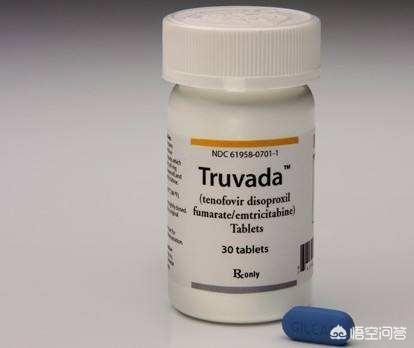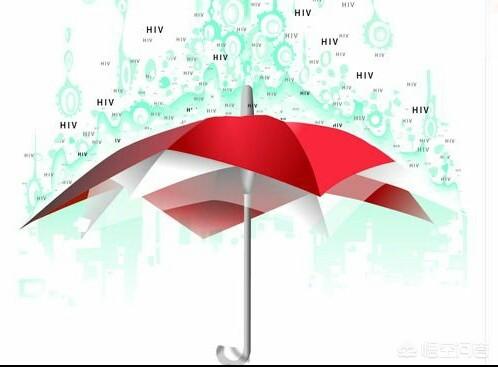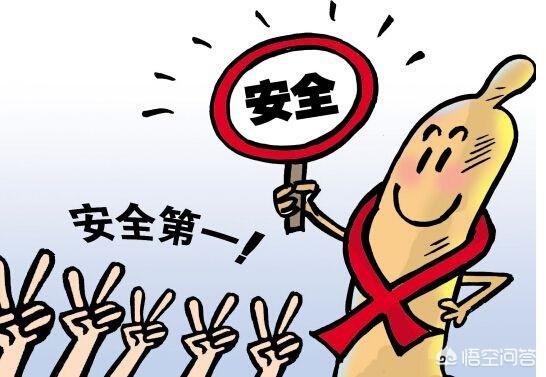Why is there no universal access to HIV blocking drugs in the country?
Why is there no universal access to HIV blocking drugs in the country?
To answer your question as a clinician specializing in the treatment and management of AIDS! At present, there are more than one million registered AIDS patients, and nearly one-third of the hidden infected people have not yet been found, and these one to two million patients and infected people also need to have a normal sex life, and conservatively calculated according to the average of each infected person with one sexual partner (according to some magazines Chinese people have more than one sexual partner), there are about two million people who have a certain degree of risk, so why is it that there is no universal distribution of free AIDS Why is there no universal distribution of free AIDS medication in China? One word--钱。
Currently the state supplies free blocking programs for medical personnel, police, etc. with high risk occupational exposures for tenofovir + lamivudine + kleenex for about $1200, while imported self-paying blocking medications range from about 4,000 to 5,000 (prices fluctuate for specific manufacturers), so it would definitely be a big expense for the state if it were provided free of charge.
So here's a concept that promotes the idea that a condom makes sense, i.e., it's safe and saves money. Of course if you have high-risk sex, don't take chances, economize, and take the side effects of medication - it's for life.

I hope it can help you! About infectious diseases can pay attention to Dr. Li Ping, health road with me!
There are three routes of HIV transmission, blood transmission, sexual transmission, and mother-to-child transmission.
I have worked on the prevention of mother-to-child transmission of HIV, and the measures taken by our country to prevent mother-to-child transmission of HIV are to provide a free HIV test and counseling to women in the early stages of pregnancy, to detect HIV-infected mothers at an early stage, and to provide free antiretroviral medication to HIV-infected mothers and their babies, and follow up with the babies up to 18 months after birth. The feeding of infants born to HIV-infected mothers is promoted by artificial feeding, avoiding breastfeeding and eliminating mixed feeding.
Antiretroviral drugs are different from vaccines, all drugs have certain toxicity and side effects, you said the universal use is not limited to the population, as far as I know, our country to HIV-infected people are provided with free medication.
The most effective way to prevent HIV infection is to control one's own behavior with respect to the means of transmission, including drug abuse, unclean sex, etc., and to take targeted protective measures to protect oneself. For those who are engaged in high-risk industries, such as medical personnel and police officers, they should do a good job of occupational protection to avoid occupational exposure and prevent blood transmission.
In the event of risk exposure, such as sex with HIV-infected people, needle-stick injuries, etc., a professional assessment should be made promptly at the local CDC, emergency treatment given, and intervention guidance and measures provided.
HIV blocking drugs are drugs that should be used to avoid HIV infection as much as possible after high-risk behaviors, and theirThe mechanism of action isBlocking one or more parts of the HIV life cycle, thereby inhibiting replication and infection and taking out the virus before it reaches the bloodstream.

For the use of HIV blocking drugs, it is mainly a remedy after high-risk behaviors such as unprotected unclean sex, suspected occupational infections, and blood contact.
HIV blocking drugs are actually antiviral drugs and are not used as usual routine preventive medications.

For the current lack of universal access to HIV-blocking drugs, this is related to the relatively specific population in which they are used, economic factors, and the fact that they are not routinely used.
So if in the occurrence of high-risk high-risk behavior, worried about infection of hiv can be timely to the CDC or local hospitals to consult in thePrompt use of blocking medications within 72 hours is most effective the sooner they are applied, with best results within two hours.

However, HIV blocking drugs are remedial measures and their application is associated with side effects as well as adverse reactions, so they should not be used as routine preventive drugs.Good occupational protection, cleanliness, unclean sex standardized application of condoms, is the best way to effectively prevent.
This drug costs about 5,000 RMB and needs to be prescribed at a designated hospital. This is not general to be able to popularize after eating a violent reaction very uncomfortable Of course as a prescription drug strictly managed.
Previously, I have heard that it is in order to strengthen the management, because the purchase of such drugs belong to the prescription drugs, you must go to the hospital prescription, most of the domestic population generally panic about this type of crowd (except the keyboard warrior), in order to real-name registration and implementation of the management, the purchase of such drugs must go through this process.
Universal is not universal is presented to the public, and such diseases belong to personal privacy, hepatitis B is also, in order to maintain the privacy of this group of people, generally will not get to the public eye as a public report of the news, the way the disease spreads we all understand, but limited to today's medical level, the public is still very much inside the fear of normal life will not have any impact, but because of the privacy of the leaks will cause panic, generally clean up yourselves! Self-love on the line.
Because there are too few patients, drug effectiveness is too short, and it doesn't make money if it regularly expires
The truth is that there is too little demand, and supply and demand affects
Back to the question, why is there no popularization of blocking drugs? Because the popularization and promotion of every drug is very difficult, new concepts, new treatments, new drugs, all of which require the investment of sufficient human and material resources and financial resources, and there are organizations and associations to take the lead, drug companies to promote them, experts to call for them, the media to report them, and then there will be policy support and government investment, and even the inclusion of medical insurance.
I tend to think that it's not that it's not widely available, it's that it's currently not widely available enough. If the FDA Health Bureau really didn't support it at all, or even banned it, hospitals wouldn't stock it and be able to use it for sale, but instead it should be strictly regulated and given out all as free medication. There won't be hospitals bold enough to sell it, especially in first-tier cities.
China's shortage of medical resources, drug shortages are not an overnight problem, there are too many drugs and medical issues that need government attention, attention is denied, while no drug company spends money to organize, no one to lead the experts and associations in the field, leading to become the current situation.
At the same time, in China, not only is this drug not popularized, but there are many other drugs, treatments, and knowledge of diseases that have not been popularized, need to be popularized, and urgently need to be popularized. This includes the general public, patients, families, and doctors. Yes, including doctors.
Since I've been doing disease education and dissemination, I've realized that many doctors are unaware, uninformed, and need to be educated. The ones who really have the vision and actively cooperate together to promote and popularize the disease are senior experts in the industry, industry bulls, because they are the ones who really understand the deficiencies in the field and want to spread the disease education so that more people can benefit from it.
There are also many patients with critical illnesses who, in a life-and-death situation, go online to study pharmacology on their own or with their families, go overseas to buy drugs on behalf of others, buy black-market drugs, look up cutting-edge drugs, call on the Food and Drug Administration to open up the approval process, and ask their own doctors how they can get better results. Many drugs, like some of the star drugs in the cancer field, are only available to patients by asking their doctors to prescribe them themselves. An example of overseas purchases, far away, is the Gleevec incident. Those who do not know about Gleevec, those who do not know that they can buy generic drugs on behalf of others, and those who cannot afford to take the drugs are at risk of having developed and died?
If, and I mean if, disease education and medication access could be done a little bit better, and some patients were informed before they got sick, is it possible that the time they waste could be greatly reduced, and is it possible that the quality of their survival could be improved? Is it possible that they could spend a little less time doing research, going to study, and understanding their disease more deeply after they get sick? Do patients have the right to choose whether to entrust everything to their doctors or to know the basics so that they can at least face their doctors and ask questions, at least to the point?
Do not say that everything depends on the doctor, the doctor also needs to progress and learning, in the hospital to do a pilot project, step by step to promote the advanced model to the subordinate hospitals at all levels, to train all levels of the relevant doctors, to organize how many industry seminars, and how many professional media cooperation, I do not know how much human and material resources and financial resources to spend, you two words, "universal access to the prevention of AIDS will be jeopardized, will promote dating", I really can only laugh. I really can only laugh at your words "popularization will jeopardize AIDS prevention and will encourage dating".
Still, popularization is a must, knowing is a must, and there is no reason for it.
I'm sorry and thank you for inviting me, I really don't know how to answer this question, I don't even know what you're asking!
cannot (see, hear, understand, as verb complement)
Medicine is a way to get rid of the disease, I think it's still about personal cleanliness! It's not scary to have a disease, it's scary to know that you have this contagious disease and still have a mentality of revenge on society, that's what's scary. Hold fast to the moral bottom line, love your own body! Exercise more and maintain good habits!
This question and answer are from the site users, does not represent the position of the site, such as infringement, please contact the administrator to delete.